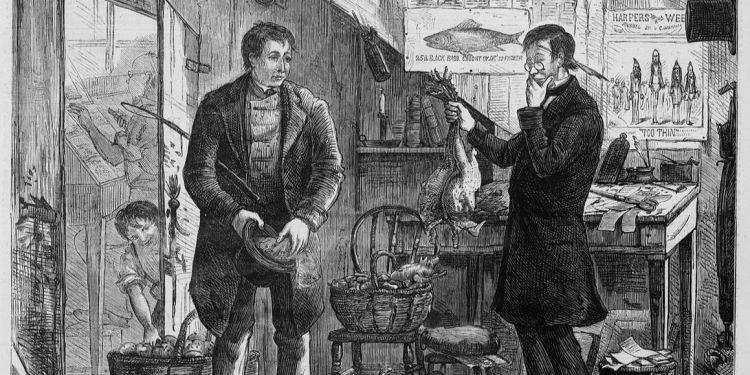Conference report: The Myth of Barter

On Friday 11th November, the School of History hosted a workshop entitled: ‘The Myth of Barter: Perspectives from the Global Middle Ages.'
How much was a ‘standard cow’ worth in eleventh-century Catalonia? What do we learn from stories about miraculously multiplying silver coins in ninth-century Rome or moneychangers dealing in sheep bones and spinning tops in tenth-century Central Asia?
Barter forms the first stage in a familiar story about the origins of money. It is also invoked in accounts of post-Roman economic collapse. Both approaches are unhelpful.
The Royal Historical Society funded a workshop, with additional support from the Cultural Life of Money and Finance project at the University of Leeds to set up more productive discussions between global medieval history, numismatics and social anthropology.
The workshop was co-organised by Visiting Research Fellow Nick Evans and Associate Professor in Early Medieval History Jonathan Jarrett.
Nick and Jonathan were joined by Professor Caroline Goodson from the University of Cambridge, Dr Robert Bracey, a numismatist who worked for many years at the British Museum and Dr Rebecca Darley from the School of History, alongside several members of the Institute for Medieval Studies.
The discussions ranged across the whole of medieval Afro-Eurasia, alongside ethnographic case studies from Bolivia to Nepal.
Participants emphasised the challenges that different types of evidence present, whether coins, documents or narrative sources.
Contributions tackled questions of scale: how do household micro-economies interact with much larger systems of exchange and extraction?
Another theme was the centrality of moral arguments to the discussion of barter, from medieval saints’ lives and ethnographies of steppe peoples to contemporary debates about crypto-currencies.
Nick was delighted by how the day went:
I’m so grateful to everyone who participated. It was just the kind of boldly comparative but source-focused discussion that I had hoped for.
Nick and Jonathan are now preparing a special issue for the Transactions of the Royal Historical Society based on the discussions.
Acknowledgements
The organisers are grateful to the Royal Historical Society for funding and supporting this event as part of its programme of Transactions Workshop Grants.
This programme facilitates day workshops that bring together historians with shared research interests to discuss their work.
The outcomes of these Workshops lead, in turn, to the publication of a scholarly article in the Society's journal, Transactions of the Royal Historical Society.
The next call for Transactions Workshop Grants will be released in 2024.
The Editors of Transactions of the Royal Historical Society also welcome submissions — from all historians, at all career stages — of articles covering new research, policy and approaches to historical research, in a range of formats.
The Royal Historical Society is the UK’s foremost learned society supporting history and historians.
For more on the Society and its work — including events, research funding opportunities and how to join as a Fellow or Member — please see the Society’s website.




